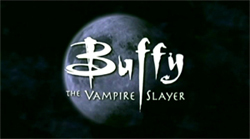| Online: | |
| Visits: | |
| Stories: |

| Story Views | |
| Now: | |
| Last Hour: | |
| Last 24 Hours: | |
| Total: | |
Five writing lessons from a master
By Brian Clegg
No, I haven't got delusions of grandeur – the master in question isn't me. However, I do quite often get asked for writing hints and tips, and I think there can be no better example to point an enquirer to for fiction guidance than Joss Whedon.
If you were expecting Steinbeck or Proust or Shakespeare, you might not know who Whedon is. His first big success was as a writer on Toy Story, and he's now involved in the Avengers series of films, but his personal masterpieces, to my mind, were a set of TV shows, including Firefly, Angel, Dollhouse and, most notably, Buffy the Vampire Slayer.
I can almost feel those with literary inclinations fainting with shock. How can real writers who pour their soul into books learn anything from a screenwriter? And you may well also be writhing at the mere title of the show, but anyone familiar with Buffy will tell you that this programme was far more than the name suggests. I am sad for a new generation coming up who may never watch the show because they think it will be too dated. And yet the mere fact that many writers love Buffy (and they do) suggests that more lies beneath than the title suggest, and that reflects Whedon's guiding hand.
So here are my five six Buffy-driven tips to make fiction more appealing:
- Invert expectations and clichés – this is the very essence of Buffy. Whedon's concept was to take the cliché of a monster chasing and killing young women and invert it to have a young woman chasing and killing monsters. It is so effective and can be applied in all kinds of ways. A lack of such inversion is the limitation of many comic book stories that have reached the screen – they rarely get away from expectation, especially in their villains. It is also why I've been pleased by the two Netflix Marvel adaptations, Daredevil and Jessica Jones, which show signs of a Whedoneseque attitude to expectation.
- Avoid the obvious hero - Buffy's central cast of main characters, sometimes self-referenced as the Scoobies (pop culture references are another Whedon speciality) are mostly the outsiders, looked down on by the other characters. The troublemakers, geeks, socially inept and even that most difficult of heroes for Americans to accept, an Englishman. We all know the English characters in US dramas will be bad guys, and occasionally this is even the case in Buffy, but surprisingly often they aren't.
- Embrace ambiguity – things are rarely what they seem in Buffy. When a rather fluffy-brained person becomes a vampire, she remains a rather fluffy-brained person, despite also being evil. Buffy was one of the first examples of recognising the true ambiguity of being a superhero, which Buffy effectively is. She can't live a normal life. She doesn't do well in school and when her friends go to university, she doesn't cope and ends up with a dead-end job in a burger joint. Even one of the truly unpleasant characters, Spike, becomes both a source of humour (I refer Buffy fans to the moment it Tabula Rasa where he has lost his memory, tries to work out who he is, and realises that he is English) and an unlikely ally for the good guys.
- Humour works in the most unlikely places – talking about humour, most Buffy newbies thinks a Buffy fan can't be serious when they say that one of the main reasons they like the show is its humour. Surely, the newcomer thinks, a show like this is all schlock and horror. Where does the humour come in? Yet Whedon uses humour all the time, particularly in the dialogue. And it works wonderfully.
- When it's working well, do something different – the greatest episodes of Buffy work because they are unexpected. For me, three of the best are an episode which has almost no dialogue whatsoever – a shock in a show so dialogue-driven as Buffy, an episode that becomes a musical (I know this has been done in other US shows, but never as well as here), and the episode after Buffy's mother's death – where this horror show has no incidental music (stunningly effective), and no horror elements other than the characters' reactions, except in the last couple of minutes.
- Play the long game – I know the title said five lessons, but I couldn't resist throwing in a bonus one. Although most Buffy episodes work standalone, the show has always had impressive story arcs that run through a whole season. Where these are particularly effective is when an element that belongs to the arc is thrown in without explanation and then ignored for the viewer to store away, perhaps for several episodes. Two examples I'd give are a season where military characters suddenly appear and take down a monster without any explanation, and the occasion where we suddenly discover Buffy's teenage sister, living at home and clearly having been part of everyone's lives for many years, even though up to this point she has never appeared or been mentioned.
Now Appearing is the blog of science writer Brian Clegg (www.brianclegg.net), author of Inflight Science, Before the Big Bang and The God Effect.
Source: http://brianclegg.blogspot.com/2015/11/five-writing-lessons-from-master.html




